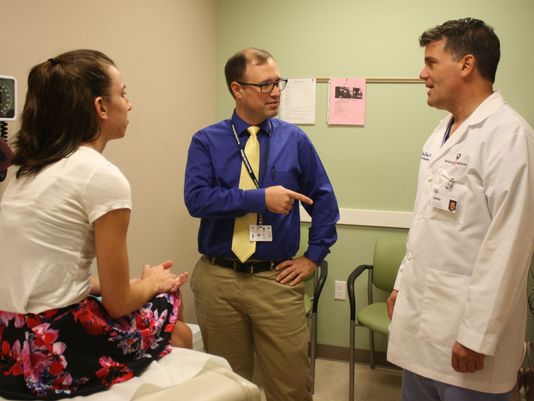Document Type
Article
Publication Title
Implementation Science
Abstract
The need for deliberately coordinated care is noted by many national-level organizations. The Department of Veterans Affairs (VA) recently transitioned primary care clinics nationwide into Patient Aligned Care Teams (PACTs) to provide more accessible, coordinated, comprehensive, and patient-centered care. To better serve this purpose, PACTs must be able to successfully sequence and route interdependent tasks to appropriate team members while also maintaining collective situational awareness (coordination). Although conceptual frameworks of care coordination exist, few explicitly articulate core behavioral markers of coordination or the related information needs of team members attempting to synchronize complex care processes across time for a shared patient population. Given this gap, we partnered with a group of frontline primary care personnel at ambulatory care sites to identify the specific information needs of PACT members that will enable them to coordinate their efforts to provide effective, coordinated care. The study has three objectives: (1) development of measurable, prioritized point-of-care criteria for effective PACT coordination; (2) identifying the specific information needed at the point of care to optimize coordination; and (3) assessing the effect of adopting the aforementioned coordination standards on PACT clinicians' coordination behaviors. Methods/design: The study consists of three phases. In phase 1, we will employ the Productivity Measurement and Enhancement System (ProMES), a structured approach to performance measure creation from industrial/organizational psychology, to develop coordination measures with a design team of 6-10 primary care personnel; in phase 2, we will conduct focus groups with the phase 1 design team to identify point-of-care information needs. Phase 3 is a two-arm field experiment (n PACT = 28/arm); intervention arm PACTs will receive monthly feedback reports using the measures developed in phase 1 and attend brief monthly feedback sessions. Control arm PACTs will receive no intervention. PACTs will be followed prospectively for up to 1year. Discussion: This project combines both action research and implementation science methods to address important gaps in the existing care coordination literature using a partnership-based research design. It will provide an evidence-based framework for care coordination by employing a structured methodology for a systematic approach to care coordination in PACT settings and identifying the information needs that produce the most successful coordination of care. Trial registration:ISRCTN15412521 © 2015 Hysong et al.
DOI
DOI 10.1186/s13012-015-0335-9
Publication Date
2015
Recommended Citation
Hysong, S.J., Che, X., Weaver, S.J., Petersen, L.A. Study protocol: Identifying and delivering point-of-care information to improve care coordination (2015) Implementation Science, 10 (1), art. no. 145,



Comments
© Hysong et al. 2015
https://www.biomedcentral.com/getpublished/copyright-and-license